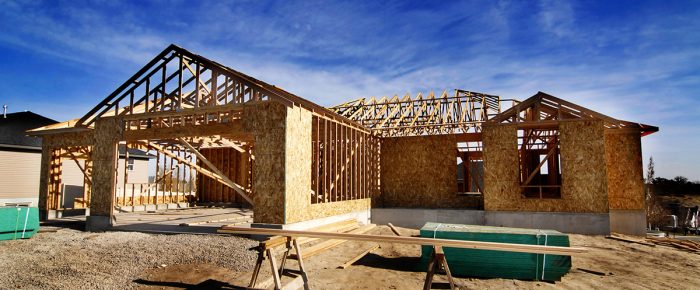
What is a construction loan?
A construction loan is a draw mortgage that allows access to funds from parts of the loan, depending on the stages of real estate construction. Its purpose is solely to finance construction of a project, therefore being a short-term loan. Payments are received as specific milestones are reached, rather than receiving the entire loan amount upfront.
The application process is different from what you would expect with a traditional mortgage, since construction plans are required in addition to the borrower’s financials. If you’re looking to build a home for your growing family or looking to develop a multi-unit property, a construction loan would help you secure funds for the project.
Individuals or companies can apply for construction loans. While banks offer construction loans, builders sometimes have to wait weeks or even months for approval, and something the draw schedule isn’t flexible enough for the project’s needs. We can provide short-term construction financing with greater flexibility and quick draws, without negatively impacting your margins.
About construction loans:
With our construction loan program, you can access up to 65% of the finished value, often approved within minutes, and with far greater flexibility than a bank.
Approval is primarily based on your equity and construction plan. Equity can be in the form of cash, investments, or property. We also consider your credit history and current financial situation when reviewing your application.
Because the property is in an unfinished state, traditional lenders often apply stricter requirements than they would for a standard mortgage. As a short-term loan, construction mortgages typically have a higher interest rate than a traditional mortgage and may require a larger down payment. They can vary in terms, costs, and conditions—we work closely with your mortgage broker to find the option that works best for you.
Key features:
- Quick access to capital
- Flexible draws
- No early payout penalties in most provinces
- No CMHC costs
- No home warranty required
- Ability to use your personal home or business to help secure funds
- Minimal documentation required
- Assistance with land purchase (up to 50% of appraised value)
I got turned down by a traditional lender, can I still get approved with a private lender?
Private lenders can offer more flexibility, as they don’t need to follow the same strict requirements as a traditional lender. If you have equity (cash, investments, or property), you may qualify, even if turned down by a traditional lender.
Would Graysbrook Capital consider funding a partially completed project that ran out of funds?
Yes. We understand that various delays can happen for many reasons often out of your control, and we’d like to help you reach the finish line!
What is a construction loan draw schedule?
A construction loan draw schedule is a payment plan, laid out in advance by lenders, that outlines how much money and when the lender will disperse money to contractors and subcontractors during the building of a project. Construction loans exist so that borrowers can have an imminent timeline to follow throughout their development process. With such an arrangement, lenders can be assured that material costs and labor are budgeted for accordingly. This draw schedule system guarantees that the borrower does not fall into financial troubles due to mismanagement, both parties benefit from its presence. Having a realistic draw schedule is essential for your successful completion of any building project.
What if I have bad credit?
Graysbrook Capital will assess your complete financial health including your home equity when processing your loan application. Credit is not the primary deciding factor leading to loan approval.
How do I apply for a construction loan?
Contact us for mortgage broker partner recommendations in Atlantic Canada to get started!
How much can I get with a construction loan?
The amount you can borrow for your project will depend on your equity and credit history. We also consider your current financial situation when determining the amount you are eligible to borrow, as well as the amount you already have saved up for your project.
What happens when construction is complete?
After construction is complete, the borrower will typically look to either refinance to a traditional mortgage, or pay off the loan.
What happens if I can’t repay my construction loan?
When taking out a construction loan, it’s important to have a solid plan for when it comes to repayment. If you are unable to repay your loan, you may be required to sell your collateral to repay the debt. Be sure to consider all of the potential risks and disadvantages – something a mortgage broker can help assess prior to finalizing the loan.

